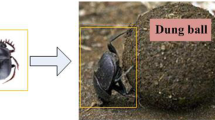Abstract
A novel hybrid tabu search algorithm with a fast public critical block neighborhood structure (TSPCB) is proposed in this paper to solve the flexible job shop scheduling problem with the criterion to minimize the maximum completion time (makespan). First, a mix of four machine assignment rules and four operation scheduling rules is developed to improve the quality of initial solutions to empower the hybrid algorithm with good exploration capability. Second, an effective neighborhood structure to conduct local search in the machine assignment module is proposed, which integrates three adaptive approaches. Third, a speedup local search method with three kinds of insert and swap neighborhood structures based on public critical block theory is presented. With the fast neighborhood structure, the TSPCB algorithm can enhance its exploitation capability. Simulation results based on the well-known benchmarks and statistical performance comparisons are provided. It is concluded that the proposed TSPCB algorithm is superior to several recently published algorithms in terms of solution quality, convergence ability, and efficiency.
Similar content being viewed by others
References
Nuijten WPM, Aarts EHL (1996) A computational study of constraint satisfaction for multiple capacitated job shop scheduling. Eur J Oper Res 90(2):269–284
Jain AS, Meeran S (1998) Deterministic job-shop scheduling: past, present and future. Eur J Oper Res 113(2):390–434
Garey MR, Johnson DS, Sethi R (1996) The complexity of flowshop and job shop scheduling. Math Oper Res 1(2):117–129
Bruker P, Schlie R (1990) Job-shop scheduling with multi-purpose machines. Computing 45(4):369–375
Brandimarte P (1993) Routing and scheduling in a flexible job shop by tabu search. Ann Oper Res 41:157–183
Saidi-mehrabad M, Fattahi P (2007) Flexible job shop scheduling with tabu search algorithms. Int J Adv Manuf Technol 32:563–570
Fattahi P, Saidi M, Jolai F (2007) Mathematical modeling and heuristic approaches to flexible job shop scheduling problems. J Intell Manuf 18:331–342
Ennigrou M, Ghedira K (2008) New local diversification techniques for flexible job shop scheduling problem with a multi-agent approach. Auton Agent Multi-Ag 17:270–287
Kacem I, Hammadi S, Borne P (2002) Pareto-optimality approach for flexible job-shop scheduling problems: hybridization of evolutionary algorithms and fuzzy logic. Math Comput Simul 60:245–276
Gao L, Peng CY, Zhou C, Li PG (2006) Solving flexible job shop scheduling problem using general particle swarm optimization. Proceedings of the 36th CIE Conference on Computers & Industrial Engineering 3018-3027
Xia WJ, Wu ZM (2005) An effective hybrid optimization approach for multi-objective flexible job-shop scheduling problems. Comput Ind Eng 48(2):409–425
Liu HB, Abraham A, Grosan C (2007) A novel variable neighborhood particle swarm optimization for multi-objective flexible job-shop scheduling Problems. Proceeding of the second IEEE International Conference on Digital Information Management (ICDIM’2007). Lyon, France, pp 138–145
Zhang GH, Shao XY, Li PG, Gao L (2009) An effective hybrid particle swarm optimization algorithm for multi-objective flexible job-shop scheduling problem. Comput Ind Eng 56(4):1309–1318
Ho NB, Tay JC, Lai EMK (2007) An effective architecture for learning and evolving flexible job-shop schedules. Eur J Oper Res 179(2):316–333
Pezzella F, Morganti G, Ciaschetti G (2008) A genetic algorithm for the flexible job-shop scheduling problem. Comput Oper Res 35:3202–3212
Xing LN, Chen YW, Wang P, Zhao QS, Xiong J (2010) A knowledge-based ant colony optimization for flexible job shop scheduling problems. Appl Soft Comput 10:888–896
Yazdani M, Amiri M, Zandieh M (2010) Flexible job-shop scheduling with parallel variable neighborhood search algorithm. Expet Syst Appl 37:678–687
Hurink E, Jurisch B, Thole M (1994) Tabu search for the job shop scheduling problem with multi-purpose machines. Oper Res Spektrum 15:205–215
Dauzere-Peres S, Paulli J (1997) An integrated approach for modeling and solving the general multiprocessor job-shop scheduling problem using tabu search. Ann Oper Res 70:281–306
Mastrolilli M, Gambardella LM (2000) Effective neighborhood functions for the flexible job shop problem. J Sched 3(1):3–20
Glover F (1990) Tabu search: a tutorial. Interfaces 20(4):74–94
Vilcot G, Billaut JC (2008) A tabu search and a genetic algorithm for solving a bicriteria general job shop scheduling problem. Eur J Oper Res 190:398–411
Pezzella F, Merelli E (2000) A tabu search method guided by shifting bottleneck for the job shop scheduling problem. Eur J Oper Res 120:297–310
Kim CO, Shin HJ (2003) Scheduling jobs on parallel machines: a restricted tabu search approach. Int J Adv Manuf Technol 22:278–287
Lei D, Wu ZM (2006) Tabu search for multiple-criteria manufacturing cell design. Int J Adv Manuf Technol 28:950–956
Gen M, Tsujimura Y, Kubota E (1994) Solving job-shop scheduling problem using genetic algorithm. Proceeding of the 16th international conference on computer and industrial engineering (ICCC & IE-94) Ashikaga pp.576-579
Van Laarhoven PJM, Aarts EHL, Lenstra JK (1992) Job shop scheduling by simulated annealing. Oper Res 40:113–125
Blazewicz J, Domschke W, Pesch E (1996) The job shop scheduling problem: conventional and new solution techniques. Eur J Oper Res 93:1–33
Zhang CY, Li PG, Guan ZL, Rao YQ (2007) A tabu search algorithm with a new neighborhood structure for the job shop scheduling. Comput Oper Res 34:3229–3242
Dell'Amico AM, Trubian AM (1993) Applying tabu search to the job-shop scheduling problem. Ann Oper Res 41(1–4):231–252
Nowicki E, Smutnicki C (1996) A fast taboo search algorithm for the job-shop problem. Man Sci 42:797–813
Balas E, Vazacopoulos A (1998) Guided local search with shifting bottleneck for job shop scheduling. Manage Sci 44:262–275
Kacem I, Hammadi S, Borne P (2002) Approach by localization and multi-objective evolutionary optimization for flexible job-shop scheduling problems. IEEE T Syst Man Cy C 32(1):408–419
Author information
Authors and Affiliations
Corresponding author
Rights and permissions
About this article
Cite this article
Li, JQ., Pan, QK., Suganthan, P.N. et al. A hybrid tabu search algorithm with an efficient neighborhood structure for the flexible job shop scheduling problem. Int J Adv Manuf Technol 52, 683–697 (2011). https://doi.org/10.1007/s00170-010-2743-y
Received:
Accepted:
Published:
Issue Date:
DOI: https://doi.org/10.1007/s00170-010-2743-y




